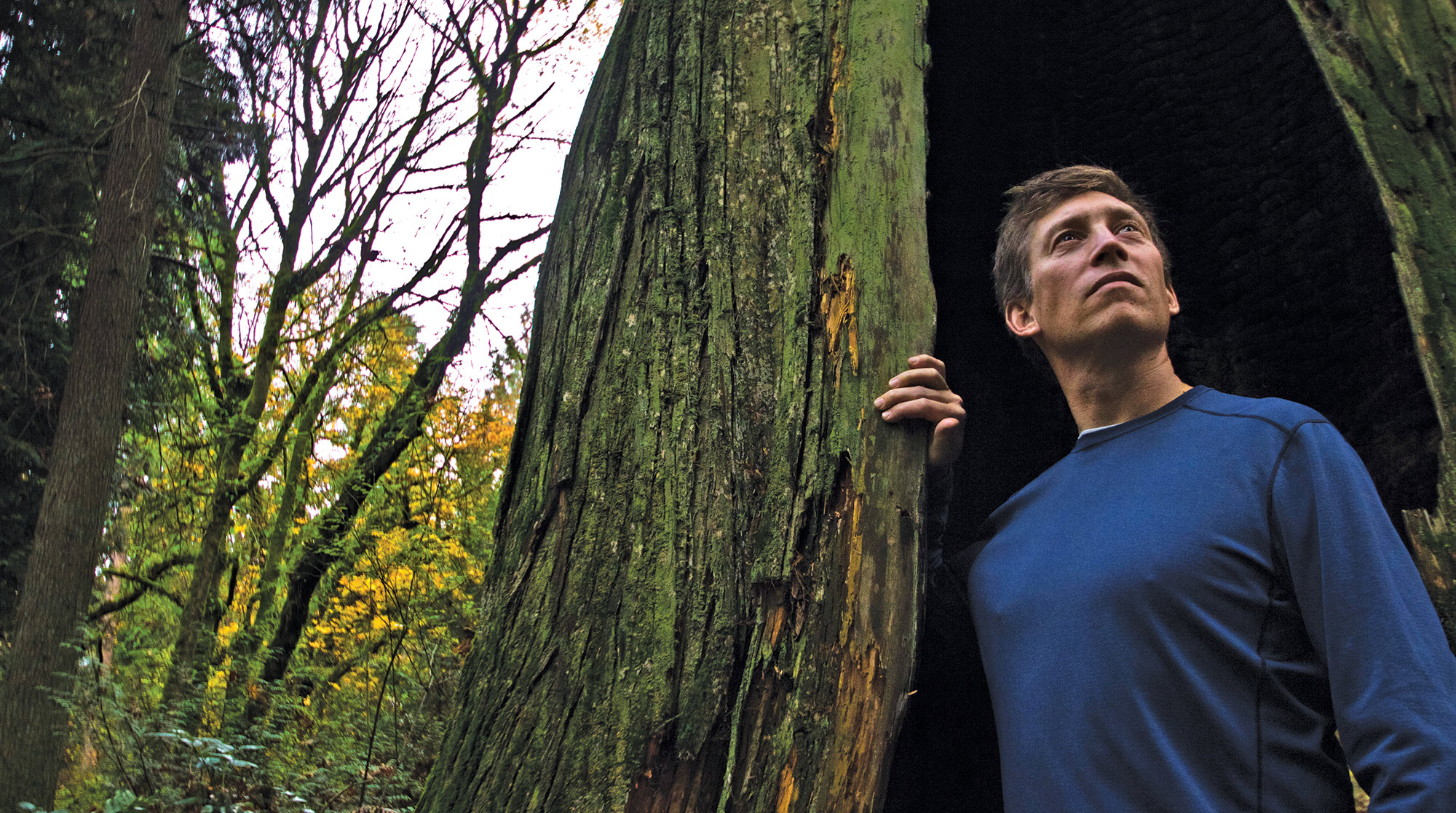

In the Pacific Northwest, we understand that some people on the East Coast don’t really get us—our geography, our food, our mountains. Once a New York City cabbie asked me if we had seafood in Seattle. Langdon Cook, ’94, is not one of those Easterners. After graduating from Middlebury College in Vermont, he moved west and never looked back. “I fell in love with the West,” he says.
The New England native wrote for the San Francisco Bay Guardian and the Berkeley Voice, worked as a wrangler on a dude ranch, ski bummed in New Mexico and caddied at a golf course (he once carried the bags of Frank and Kathy Lee Gifford). In his mid-20s, he came to Seattle for graduate school in creative writing at the UW Department of English. There, he met his wife, Martha Silano, ’93, who is among the country’s most highly regarded poets.
Silano was thrilled to receive the PEN Northwest’s Margery Boyden Wilderness Writing Residency, so she and Cook—who had spent eight years as a senior editor at Amazon—used the stipend to leave Seattle for a cabin on the Rogue River in Oregon. There, Cook, who coincidentally had received the same residency 11 years earlier, published his first book, Fat of the Land. He also began writing a blog called fat-of-the-land.blogspot.com, which he’s still publishing.
One day, when he printed out almost a year’s blog posts, he noticed a theme running through the material—foraging. One reviewer picked up on that: “Armed with nothing more than a Hawaiian sling spearfishing tool, he (Cook) finds himself free-diving in icy Puget Sound in hopes of spearing a snaggletooth lingcod. He bushwhacks through rugged mountain forests in search of edible mushrooms. He strings up a fly rod to chase after sea-run trout. He even pulls on the gardening gloves to collect stinging nettles.”
Cook’s second book, The Mushroom Hunters, published last year, is a delicious read about the eccentric, off-the-grid mushroomers who hunt high and low to gather thousands of pounds of the delicacies. Larded with geography, character sketches and zesty writing, the book received a Pacific Northwest Booksellers Award.
Next up is a book about salmon. Slated for publication next fall, Upstream will cover everything from the culinary side of salmon to the iconic fish’s role in Native American culture to ongoing efforts to restore depleted runs.
While his work is not stridently polemical, Cook always infuses his stories with the message: “We can’t keep living the way we’re living.” He approaches his environmental writing, he says, “like wrapping up a dog pill in hamburger. I do try to entertain while I’m instructing.”
Cook’s books make for enjoyable reading. It will be a pleasure to swallow his next “dog pill.”